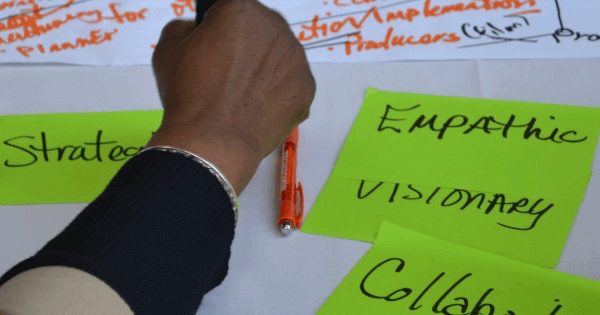The “Coach Approach” in Management
During a recent coaching session, a client of mine who manages several teams excitedly reported he was utilizing coaching skills with his direct reports. “Instead of just telling them what to do, or correcting their mistakes for them, I’m coaching them to learn from their mistakes, think outside the box, and take ownership.”
Using a Coach Approach in Management
Needless to say, I was thrilled my client was using a coach approach with his team. Anyone who has led a team knows that inspiring, motivating and empowering people is integral to driving results. However, managers sometimes tend to lean on a more directive approach, which can be useful in certain situations, but not all. Helping people be creative, innovative, and collaborative requires leadership and awareness around how to create an environment where people can really thrive.
Here are a few “coach approach” tips to try with your teams:
- Create a Clear Roadmap: The first thing we do when establishing a coaching relationship is create a roadmap. We set clear goals and objectives with a reasonable timeline. When delegating projects or tasks to your teams, make sure you are setting clear expectations, setting clear guidelines and timelines. This ensures you are setting them up for success, and decreasing the chances for miscommunication, or receiving less than desirable results.
- Accountability: This is an integral piece of the coaching relationship – the client knows they will be held accountable to the assignment they committed to at the end of a coaching session. Many managers forget to build in accountability during a project or task, assuming people will come to them with questions. If you build in time for updates, questions or time to discuss issues, this holds people accountable and helps you stay ahead of the curve.
- Failure is OK: Creating an environment where failure is OK can be really challenging for some managers (esp those with perfectionist streaks!). In a coaching relationship, mistakes are allowed, and often times even celebrated! Learning from mistakes is essential to people development – and it’s up to the manager to make that OK. This is a great coaching opportunity to get curious, ask questions and listen deeply to understand challenges and help people grow.
The best way to learn coaching skills is to work with a coach yourself to experience the power of coaching firsthand. If you haven’t had the opportunity to try it, I encourage you to do so to develop the skills you need to help develop your teams.





